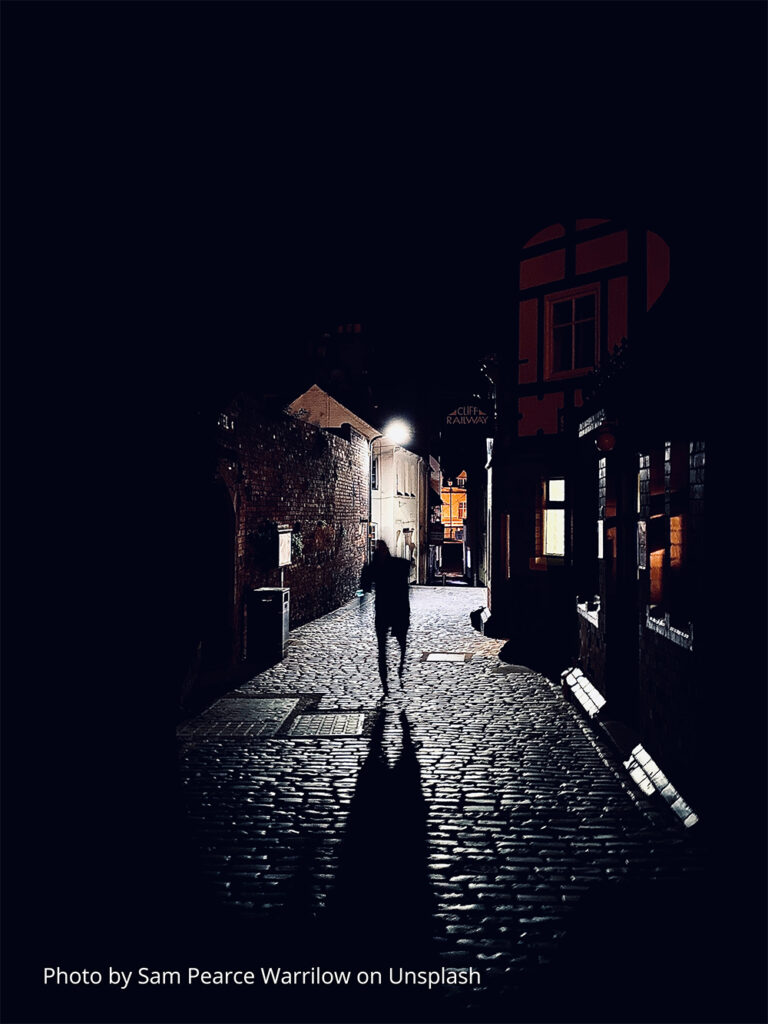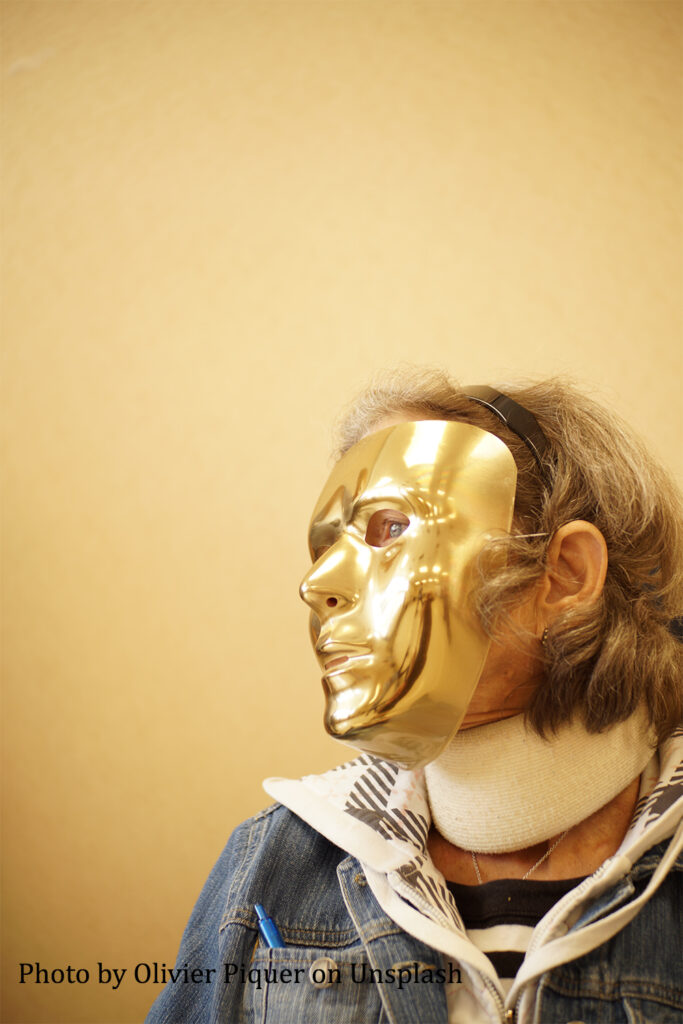Why “Just Get Over It,” Doesn’t Work and Never Will
What happens to the brain and body when we are confronted with a traumatic and/or shocking event?
What happens if you have confronted or been confronted by a paranormal event?
You have encountered a being, a circumstance, or an event that simply “CAN’T BE:”
There’s an ungodly crash downstairs in the kitchen in the middle of the night or a giant Sasquatch is pacing you in the forest. What happens next? If you’re among the vast majority of people, you will experience a cascade of bodily effects:

- Your brain produces powerful stress hormones that dictate the body’s response.
- Your heart dilates and strengthens its muscle contractions.
- Your blood is redirected to the large muscle groups.
- Your breathing becomes shallow and rapid.
- Your eyes dilate.
- Your muscles tense.
- Your non-essential body functions like digestion shut down.
- Your prefrontal cortex shuts down.
Like a bolt of lightning striking you and exploding in your body and brain, trauma has an immediate and global effect. The so-called symptoms of trauma are actually the body’s way of trying to keep you alive. The heart pumps faster in order to supply the legs and arms with more power for running or fighting. Breathing also increases in order to supply more oxygen to the limbs. Pupils dilate to allow more light in, and the prefrontal cortex shuts down the thinking brain in favor of the reptile and limbic brains. This allows you to take immediate action without ruminating on it.
If you find yourself in a situation where neither “fight nor flight,” is an option, the body has a system for that as well. You will go into a “freeze” mode in which the body and brain will simply shut down and “feel good” endorphins will flood your central nervous system.
This is a great system. It has kept the human race alive for millennia. The problem is that sometimes the body’s way of coping is so powerful, there are after-effects. We call these after-effects Post-Traumatic Stress and they can last a lifetime.
You can’t “brave” yourself out of these effects. This is about survival, not courage or heroics.
If you are a healthy, conscious human, this is how your body will respond to extreme stress no matter the cause. You don’t have a choice in this. Of course, the stress response is not confined to paranormal experiences. Volumes have been written on trauma resulting from all manner of extreme stress and its after-effects.
Paranormal Post-Traumatic Stress Disorder: The After-effects are the Problem

Post-Traumatic Stress Disorder is a fairly new area of study and there’s still quite a bit about it that’s unknown. For instance why different people impacted by the same stressor may have completely different responses. One person may walk away fairly unscathed, while another may suffer with residual effects.
Current theory suggests that this may be due to an individual’s prior history of trauma, especially childhood trauma and/or genetic makeup.
It also greatly depends on the nature and intensity of the experience. If the experience is powerful enough, it seems that virtually everyone will experience residual effects.
Signs that You May be Experiencing Residual Effects from Trauma
If you’ve had a traumatic experience of any kind, you might experience a multitude of symptoms, including:
- Hypervigilance – You may find that you’re always scanning the metaphorical horizon for trouble.
- Problems with sleep – Your sleeping patterns may have changed. You may find that you’re sleeping excessively or struggling with chronic insomnia.
- Difficulty concentrating
- Extreme emotions – You may find that you are reacting more strongly to emotional triggers, especially anger.
- Exaggerated startle response – You may find that you’re jumpy and easily frightened.
- Panic – You may find that you have developed symptoms of panic. This may happen when you think of the trauma or seemingly for no reason at all.
- Flashbacks – You may find that you experience terrifying flashbacks of the traumatic event when triggered by something that reminds you of it.

Overcoming the Stigma of Both a Paranormal Experience and Residual Trauma
For people who experience trauma through the accepted routes, like combat or a natural disaster, it is often difficult to seek treatment. We either deny the symptoms or beat ourselves up for not being better able to cope. For men in particular, based on cultural bias, it can feel like a weakness. Often the people around us are complicit in this campaign of ignorance. The advice we receive from just about everywhere, including from ourselves may be to “just get over it.”
Of course, this would be great advice if it worked. Unfortunately, it doesn’t. If trauma has ravaged your brain and body, it can leave damage behind. Much like the Polio virus can infect a person, causing damage to muscle cells. The virus may be gone but it has left tornado-like devastation in its wake. The biggest difference between trauma and post-pathogen damage is that one’s aftermath is visible and one is not.
If it’s difficult for people to accept the effects of trauma arising from so-called “normal” circumstances, imagine the difficulty for the paranomal experiencer. Not only is he trying to hide and/or deny is symptoms, he may also be grappling with the nature of the traumatic event itself. He may be in denial about the paranormal event and/or hiding it from other people.
Lemons to Lemondade and The Hanged Man

Is it possible to “just get over it?” Clearly, it’s not but 1980s trauma research indicates that for the majority of people experiencing trauma in their lifetimes (a whopping seventy-five percent of us,) experience changes that they ultimately view as positive.
The people who report positive changes are those who also report undergoing a healing process. They report that they received compassionate support from at least one other person and they practiced scrupulous self-care.
While a positive outcome has not been experienced by all, those who did talk about accepting the global changes in their beliefs about themselves and the nature of the world. They reported an (often gradual) acceptance of their new paradigm and the cultivation of new coping skills.
In other words, they didn’t seek to re-establish themselves as they were before the P-TSD, but instead allowed it to open them up to a brand new model for living.
The Hanged Man Tarot card comes to mind. In it, we see a man with his arms tied behind him hanging upside down from a tree. He is clearly unable to move and decidedly stuck.
From this upside-down place, he finds himself with a brand new perspective on the world. The key to his freedom will be accepting and adjusting to this new outlook.
It’s interesting to note, also that the two cards following the The Hanged Man are Death and Temperance. Death is about letting go of what is no longer serving us and Temperance is about acheiving balance and harmony.
We must let go of the life we have planned, so as to accept the one that is waiting for us.
– Joseph Campbell
